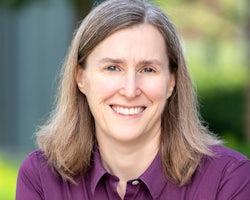Three McKelvey Engineering faculty receive LEAP Awards
The awards, given by the Skandalaris Center, help faculty prepare their products for commercialization

Three faculty members from the McKelvey School of Engineering have received awards from the Skandalaris Center's Leadership and Entrepreneurial Acceleration Program (LEAP).
The LEAP Awards support Washington University faculty developing a product or innovation and provide industry connections and gap funding to stimulate WashU technology commercialization, illuminate investment risk and rapidly accelerate developing validated projects.
For the Fall 2020 cycle, seven of the 22 projects evaluated were selected to receive funding. The McKelvey Engineering faculty who received awards are:
- Richard Axelbaum, the Stifel and Quinette Jens Professor of Environmental Engineering Science, with Kathy Flores, interim chair of the Department of Energy, Environmental & Chemical Engineering and professor of mechanical engineering & material science; Phillip Irace, a doctoral student in Axelbaum’s lab; and Daniel Miracle, a senior scientist at the Air Force Research Lab, for a project titled “Flame-Assisted Additive Manufacturing (FLAAM),” a new approach to 3D printing metals that is capable of fabricating novel components composed of many highly-desired materials not accessible in existing 3D printing processes.
- Hong Chen, assistant professor of biomedical engineering and of radiation oncology in the School of Medicine, with Chris Pacia and Lu Xu, both doctoral students in Chen’s lab, for a project titled “SonoBiopsy: Improving molecular diagnosis of brain diseases by targeted sound,” which provides molecular diagnoses of brain diseases without surgery.
A team that includes McKelvey Engineering students also received funding. Halle Lowe and Chase Hartquist, both BS/MS students in mechanical engineering; and Vinay Chandrasekaran, a senior majoring in computer science, are members of a team developing a project titled “AIR Seal: A multi-purpose seal for aerosol-blocking, intubation and respiration (AIR),” which allows for quick, easy ventilation of COVID-19 patients through a laryngeal mask airway (LMA) that is dynamically sealed to block viral aerosol transmission.
The complete list of winners is available at the FUSE website.
Click on the topics below for more stories in those areas
- Research
- Energy, Environmental & Chemical Engineering
- Biomedical Engineering
- Mechanical Engineering & Materials Science






